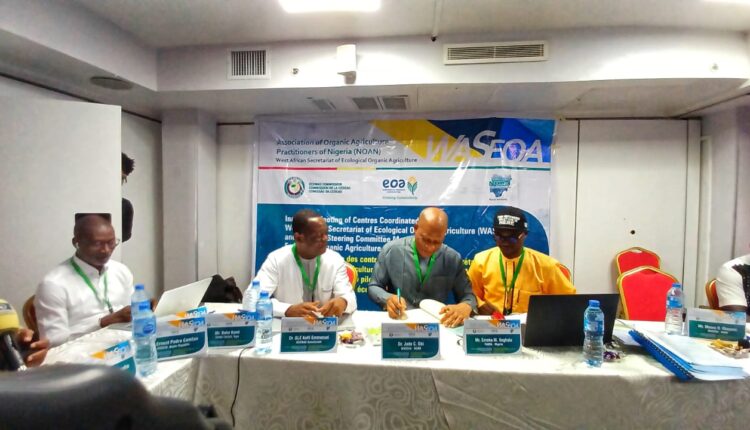ECOWAS Launches Bold Youth Employment Drive in Organic Agriculture
***Over 1,200 Young Farmers to Be Trained Across Six Nations
The West Africa Secretariat of Ecological Organic Agriculture (WASEOA), in collaboration with ECOWAS, has launched a bold new regional initiative aimed at training over 1,270 young people—40% of them women—across six West African nations.
This is part of effort to combat youth unemployment and transform food systems through sustainable agriculture
The two-day inception workshop, held at the Ibis Hotel in Ikeja, Lagos, marked the launch of a youth employability programme under ECOWAS’ $2.2 million Agro-Sylvo-Pastoral and Halieutic (ASPH) training initiative.
The event signaled a new phase in regional agricultural reform, with nine Coordinated Centres across Nigeria, Benin, Togo, Liberia, Côte d’Ivoire, and Senegal tapped to deliver hands-on training in ecological organic agriculture and agroecology value chains.
These sectors, long underutilized and often overlooked by youth, are being reimagined as viable pathways to economic empowerment and food system resilience.

ECOWAS focal point on agroecology and Chairman of the Regional Steering Committee for the Ecological Organic Agriculture Initiative (EOA-I), Dr. Gle Koffi Emmanuel emphasized the demographic and economic urgency behind the initiative.
“Over 60% of West Africa’s population is under 30, yet too many young people remain unemployed or underemployed. This program is not just about farming—it’s about equipping youth with tools, skills, and confidence to build sustainable livelihoods.”
According to ECOWAS, a total of 3,850 youth will be trained under the ASPH programme, with WASEOA receiving $594,000 to support at least 1,280 trainees.
Training will focus not only on organic production but also on entrepreneurship, access to finance, policy advocacy, and climate-resilient food systems.
President of the Association of Organic Agriculture Practitioners of Nigeria (NOAN), Jude Obi described the initiative as a “watershed moment” in youth engagement and agricultural transformation:
“This programme must leave a significant impression on the dynamics of food and nutrition systems across the region. We have an odorous burden and a glorious opportunity—to turn West Africa’s youth bulge into an agricultural renaissance. Welcome to Lagos. Welcome to the future.”
The workshop served as a platform for, sharing success stories and challenges from earlier project phases; Reviewing implementation blueprints from new training centres; Aligning national youth policies with agroecological goals and nd forging partnerships to boost agri-business capacity and innovation.
A key pillar of the programme is to curb irregular youth migration by making rural economies more attractive and economically viable.
WASEOA’s 2030 envisioned that 25% of youth that enter the workforce annually are employed in agriculture, 75% reduction in youth unemployment and underemployment, and a sharp drop in uncontrolled migration driven by economic desperation.
Backed by the African Union and supported by development partners including SDC and Biovision Africa Trust—the Ecological Organic Agriculture Initiative which was launched in 2011 has grown into a continental force advocating for food systems that are safe, inclusive, and regenerative.
Dr. Koffi added a note of policy urgency: “We must now establish a regional framework to regulate the quality of organic fertilizers. Ecological Organic Agriculture is not just a technique—it’s a path to healthier populations, resilient economies, and sustainable ecosystems.”
As the Lagos workshop continues through May 14, momentum is building behind a programme many believe could change the face of agriculture in West Africa—and help redefine the future of its youth.

